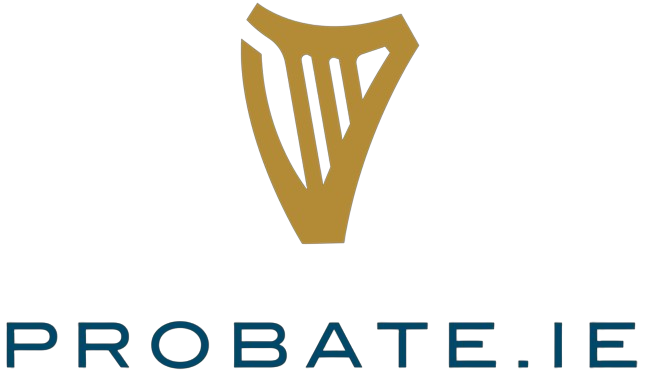Probate FAQs
What is Probate?+
When a deceased has made a Will, the process which allows the assets to be distributed is called Probate. The representative(s) of the deceased is known as the Executor (s).
If there was no Will, then the process is called Administration.
How long does probate take in Ireland?+
The length of time required to complete Probate in Ireland will depend on the individual circumstances of each case. However, the Probate Office in Dublin currently has a backlog of approximately 4-6 weeks from the date papers are lodged.
Therefore, taking account of this backlog, it usually takes approximately 4-6 months for the Grant of Probate to issue from the date we receive all relevant information.
Is a Grant of Probate always required?+
It is not always necessary to extract a Grant of Probate. A Grant of Probate will not be required where all assets and property are held in joint names.
In addition, if there is only a cash asset, such as a bank account with less that €25,000 in the sole name of the deceased, this can often be dealt with under the small estates procedure. This procedure allows cash assets under €25,000 be accessed upon death without the need to extract a Grant of Probate. The requirements for each institution can vary and therefore it is important to check with the financial institution involved.
If there are shares or land or property in Ireland a Grant of Probate will always be required.
What is Grant of Administration?+
When a deceased has not made a Will, the process which allows the assets to be distributed is called Administration. The representative(s) of the deceased is known as the Administrator(s).
If there was a Will, then the process is called Probate.
What should I do when a relative dies?+
When a loved one dies it can be a very difficult time for the close family members. Decisions have to be made and arrangements made which can be very overwhelming.
We advise our clients that the first practical thing to do is to make the funeral arrangements. Once the funeral is over your relative’s death needs to be registered with the local Births, Marriages and Deaths Office.
It will be possible for the solicitor acting in the Estate to make arrangements for the immediate payment of funeral expenses from the bank account (post office account etc) of the deceased. The death certificate will be required to deal with the Estate of the deceased.
Did your relative leave a will?+
Once the immediate aftermath of the funeral has passed you should ascertain if your relative has left a will. Most people nowadays will execute a will, the original of which will normally be kept at their solicitor’s office.
What should I do if my relative has not left a will?+
If your relative has not left a will then they are deemed to have died Intestate. As such their estate must devolve and pass under the Rules of Intestacy in the Succession Act 1965 as per the diagram below, which shows who is entitled to inherit the estate. In order to administer and distribute your relative’s Estate whether they died Testate or Intestate you should consider contacting your solicitor to initiate the appropriate Administration or Probate procedures on your behalf.
Intestate Succession – Order of Entitlement for deaths on or after the 1st January 1967.
In brief, the order of entitlement to inherit under the Rules of Intestacy is as follows: –
….1. Spouse and Children/Civil Partner and Children
….2. Grandchildren
….3. Great-Grandchildren
….4. Great-Great Grandchildren
….5. Parents
….6. Brothers and Sisters
….7. Nieces and Nephews
….8. Grandparents
….9. Uncles and Aunts
..10. Great-Grandparents
..11. First Cousins/Great Uncles & Aunts / Great Nephews & Nieces
..12. Great-great Grandparents
Can I access deceased relatives utility documents?+
After the death of a loved one it is often difficult to deal with utility bills and service providers due to the fact that these companies cannot speak to anyone except the account holder under the Data Protection Acts. These can be most upsetting and frustrating where the sole account holder is deceased. We can advise such companies of the death and clarify who is entitled to deal with the account on behalf of the deceased account holder. This will ensure that there is a smooth continuity of service if needs be or that the account is closed without delay. If you are having difficulty with utility bills or other service providers please contact us.
How are funeral expenses paid?+
Paying the funeral directors expenses is often a worry for executors and families. These expenses can be discharged before the Grant of Probate issues providing there are sufficient funds in the deceased person’s bank account. Once the funeral directors bill is received it can be presented to the financial institution along with the death cert and a bank draft will be released to discharge the fees. The balance of the bank account will be dealt with in the distribution of the estate in due course.
What if your relation left property in another country?+
If your relative has left property in a foreign country then the Executor or Administrator of the Estate should seek firstly to establish if their deceased relative left a Will in the particular country. Secondly, the Executor or Administrator should obtain legal advise of a solicitor or lawyer in the particular country in which the property is situated in order to ensure that the property abroad is distributed according to your deceased relative’s wishes.
Is there anything else you should consider?+
If the deceased owned property such as a house you should contact the property insurer and ensure that the insurance will remain in place whilst the property is vacant. Insurers must be kept advised of all relevant information.
In this difficult time you may find it helpful to avail of Bereavement Counselling. A number of charities also offer assistance and support to the relatives of a loved one who has passed away such as Barnardos, Hospices and various Family Support Agencies and Local Support Groups.
At J R PLUNKETT we can assist and advise you with any legal aspect of your deceased relative’s Estate or if you would simply like to discuss and make your Will.
What is Capital Acquisitions Tax (CAT)?+
Capital Acquisitions Tax (CAT) comprises of Gift Tax, Inheritance Tax and Discretionary Trust Tax. The tax is charged on the taxable values of the gift or inheritance.
CAT works by the application of a tax free allowance called a “Threshold”. Essentially, an individual has three thresholds and the inheritance/ gift will be examined using the appropriate threshold. Each threshold relates to the relationship between the deceased/ person giving the gift and the individual inheriting/ benefiting from the gift. The current thresholds are as follows;
Group A – Son/Daughter – €310,000
Group B – Parent/Brother/Sister/Niece/Nephew/Grandchild – €32,500
Group C – All other relationships not covered above – €16,250
These thresholds or tax free allowances apply once only from 05/12/1991 to date. Thus, the threshold can be used for multiple inheritances within one group and indeed can be exhausted by one inheritance/gift leaving no threshold for the next inheritance/gift.*In certain circumstances, a parent taking an inheritance from a child can qualify for a Group (A) threshold
When an inheritance or gift exceeds the relevant tax free threshold, tax at a rate of 33% applies on balance of the gift or inheritance.
There are exemptions and reliefs which can be availed of to minimize CAT liability such as:
- Spouse to Spouse and Civil Partner to Civil Partner exemption
- Surviving Spouse Relief
- Small Gift Tax exemption of €3,000
- Agricultural Relief
- Business Relief
- Dwelling House Relief
- Child to parent Relief and Exemption
- Favourite Niece/ Nephew relief
It is extremely important to seek legal and financial advice on the possible tax implications of any gift or inheritance as penalties can apply for late payment along with interest.
How is Capital Acquisitions Tax calculated?+
Capital Acquisitions Tax is chargeable on the balance of the gift or inheritance after the relevant threshold or tax free allowance has been deducted. Any expenses incurred can be deducted.
Can a UK Grant of Probate be resealed in Ireland to access an Irish asset?+
There is no process of resealing a UK Grant in Ireland. If there is an Irish asset, such as a bank account over €25,000 or shares in an Irish registered company or land in Ireland a Grant of Probate/Administration will need to be extracted in Ireland.




